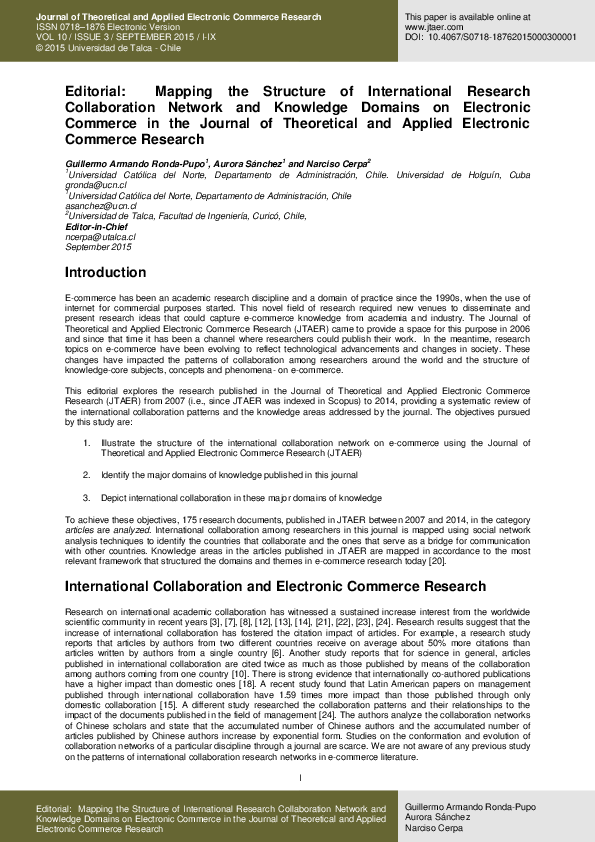印度无组织本地化邻里零售店数字化的决定因素
IF 5.1
3区 管理学
Q1 BUSINESS
Journal of Theoretical and Applied Electronic Commerce Research
Pub Date : 2024-07-01
DOI:10.3390/jtaer19030083
引用次数: 0
摘要
数字颠覆的增加和不同利益相关者偏好的改变,导致商业生态系统的各个层次都采用了数字技术。本研究的重点是确定新兴经济体中无组织的小型本地化零售店(Kirana 商店)数字化的决定因素。在技术接受模型(TAM)和技术接受和使用统一理论 2(UTAUT2)等技术采用模型的基础上进行了一定的修改,构建了一个理论模型,以研究数字化对一般业务绩效的影响以及作为大流行病的影响。为了验证这一理论模型,我们对印度不同地区的 285 家无组织本地化零售店进行了调查,并进一步采用了结构方程模型。研究结果表明,成本、兼容性、感知易用性和感知有用性会显著影响数字化的意向。本研究通过探讨数字化在新兴经济体无组织部门中的流行后影响,为这方面现有的稀缺文献增添了新的内容。本文章由计算机程序翻译,如有差异,请以英文原文为准。
Determinants of Digitalization in Unorganized Localized Neighborhood Retail Outlets in India
The increase in digital disruptions and changing preferences of different stakeholders has led to digital adoption in all hierarchies of business ecosystem. This study focused on the identification of the determinants of digitalization in unorganized small, localized retail outlets (Kirana stores) of an emerging economy. A theoretical model was constructed with certain modifications based on technology adoption models such as Technology Acceptance Model (TAM) and Unified Theory of Acceptance and Use of Technology 2 (UTAUT2) to study the impact on business performance in general and as an effect of pandemic. A survey of 285 Unorganized Localized Retail Outlets Stores from different regions of India was used to validate this theoretical model, and structural equation modeling was then further employed. The findings underscore that cost, compatibility, perceived ease of use, and perceived usefulness significantly affect the intention to digitalize. By addressing the post-pandemic impact of digitalization within an unorganized sector in an emerging economy, this study adds to the scant literature that exists in this context.
求助全文
通过发布文献求助,成功后即可免费获取论文全文。
去求助
来源期刊
CiteScore
9.50
自引率
3.60%
发文量
67
期刊介绍:
The Journal of Theoretical and Applied Electronic Commerce Research (JTAER) has been created to allow researchers, academicians and other professionals an agile and flexible channel of communication in which to share and debate new ideas and emerging technologies concerned with this rapidly evolving field. Business practices, social, cultural and legal concerns, personal privacy and security, communications technologies, mobile connectivity are among the important elements of electronic commerce and are becoming ever more relevant in everyday life. JTAER will assist in extending and improving the use of electronic commerce for the benefit of our society.

 求助内容:
求助内容: 应助结果提醒方式:
应助结果提醒方式:


